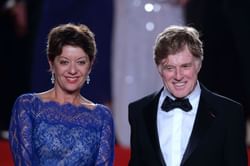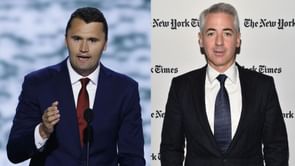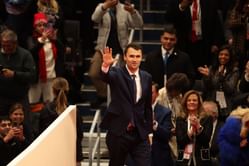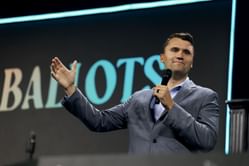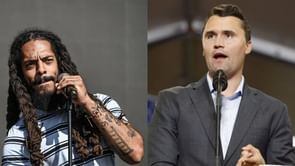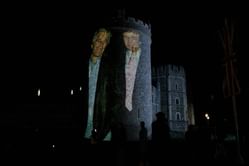
Various sources dispute the reality of the series "90 Day Fiancé." Some of the couples on the show claim that it is scripted, but TLC is typically seen defending it. Therefore, it cannot be verified.
Several claims that "90 Day Fiance" is scripted have been made over the seasons. It reached the point where Alon Orstein, senior vice president of production and development at TLC, made the following remarks in an interview with E!
"The real calling card of TLC and certainly of 90 Day Fiancé is that it is authentic. We’re not putting these couples together; these people aren’t actors. These are real people, and it’s all about individuals looking for ‘the one.’ And sometimes it’s across thousands of miles, and sometimes they haven’t known each other for very long, but these are all people who have connected on their own, and we want to be that fly on the wall who’s along for the ride."
Chris Thieneman and his wife, Nikki Cooper, were among the first former cast members to publicly criticize the show and its production. The couple was featured in a storyline involving friend David Toborowsky and his future wife, Annie Suwan, on season five of 90 Day Fiancé. David and Annie continued their storyline in Season 3 of the spinoff "90 Day Fiancé: Happily Ever After."
Chris and Nikki recorded a mukbang video for their YouTube channel shortly after appearing on the show in May 2018. Mukbang videos feature celebrities chowing down on copious amounts of food while interacting with their viewers. Chris and Nikki chose the subject of reality TV for their chat and responded to questions from the audience.
"Is it scripted?" a viewer inquired during the video, titled "Our ‘Reality’ TV Experience." Chris said, "Well, absolutely part of it is. No question. Some of it is real and then teased with and added to or subtracted from."
How do couples get in touch with the show 90 Day Fiance?
According to "90 Day Fiancé" executive producer Gabriela Tavakoli, "hundreds" apply using the instructions provided at the end of each episode. Additionally, Matt Sharp stated during the TCA press tour that the show also makes contact with some people through immigration lawyers.
Sharp affirmed that "we don't put people together." Every person we highlight on the program "found themselves organically." Whether those couples fell in love naturally is a different matter.

Although the plots may not always be true, the couples are, by all accounts, real. In other words, they weren't put together by a casting director just for the show. According to Anfisa Nava of Season 4, who made the statement in a since-deleted Instagram post. "You already know the person and have decided you want to marry them by the time the filming begins," Nava said.
What is TLC’s 90 Day Fiance?
A K-1 visa, which is only available to foreign fiancés of U.S. citizens, is followed by couples in "90 Day Fiancé," an American reality television series on TLC. These couples have 90 days to get married after applying for or receiving the visa. The first episode of the nine-season television series aired on January 12, 2014.
The 90 Day Fiancé franchise has eighteen spin-offs, including "90 Day Fiancé: Happily Ever After," which follows married 90 Day Fiancé couples; "90 Day Fiancé: Before the 90 Days," which follows couples who met online but have not yet begun the K-1 visa process; and "90 Day Fiancé: The Other Way," in which the American partner relocates to their partner's home country rather than vice versa.
The "90 Day Fiancé Universe," or simply the "90 Day Universe," is the collective name for the original series and its spinoffs used by Warner Bros and Discovery, the parent company of TLC.
What was the original idea behind 90 Day Fiance?
It all began with a feature in a magazine. When reality TV producer Matt Sharp read a story about Americans traveling abroad to find love, he thought he had found the idea for his upcoming reality show. The networks, on the other hand, weren't as excited about the concept, so his team tailored the pitch to appeal more to men. They jointly developed the ridiculously masculine-sounding "Bachelor Wars: Russia."

According to Sharp, who spoke on the "Reality Life" podcast, the idea was to pitch male networks a show that would follow men looking for love abroad and track their success.
When the networks failed once again, it was time to start over. When they centered the concept around the 90-day K-1 visa, they believed they had hit gold, but the networks ended up having three strikes against them.
Sharp gave up on the pitch before running into a TLC higher-up, who inquired as to whether he had any smart suggestions. The higher-up was immediately convinced after Sharp explained the 90-day concept to him and made an immediate offer to purchase the concept.
